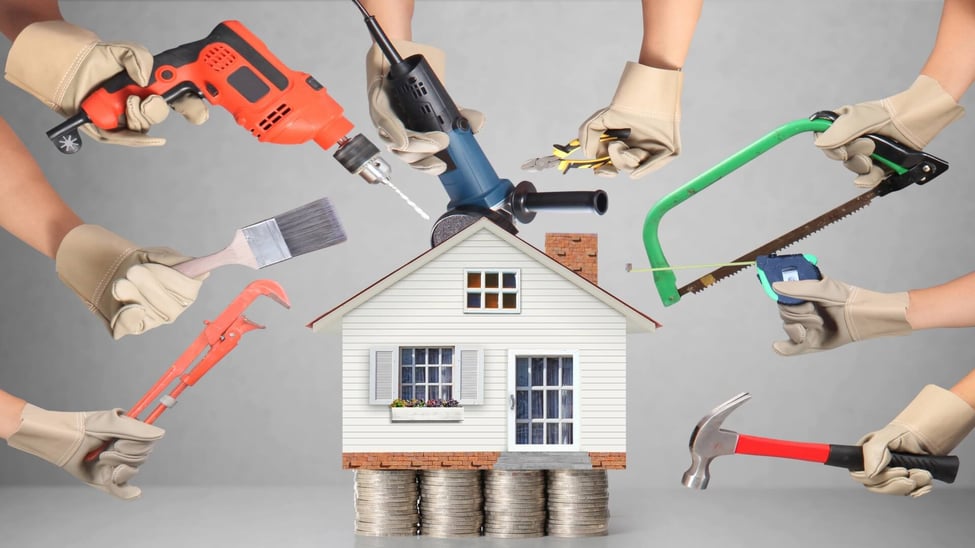Should You Renovate Before Selling?
When it comes to selling your home in Toronto, one of the most pressing questions homeowners face is whether to invest in renovations before listing the property. While some argue that a well-renovated home attracts more buyers and fetches a higher price, others believe that not all renovations yield a worthwhile return on investment. To help you decide, let’s weigh the pros and cons of renovating before selling in Toronto’s dynamic real estate market.
The Pros of Renovating Before Selling
1. Increase the Sale Price
Renovations, especially in high-impact areas like kitchens and bathrooms, can significantly boost your home’s market value. Buyers are often willing to pay a premium for move-in-ready properties that require little to no additional work. In a competitive market like Toronto, where demand is high, a modern and updated home can help you stand out.
2. Attract More Buyers
A freshly renovated home often photographs better, which can generate more interest online. Since the first impression buyers often have of your home is through digital listings, updated finishes, fresh paint, and modern fixtures can make a big difference in attracting foot traffic to your property.
3. Faster Sale
Move-in-ready homes tend to sell faster because they appeal to a broader range of buyers, including those who lack the time, budget, or vision for renovations. A quicker sale can save you months of carrying costs, such as mortgage payments, utilities, and property taxes.
4. Fix Underlying Issues
Renovating can also address underlying problems, such as outdated wiring, plumbing issues, or structural damage. Tackling these issues proactively can prevent surprises during the buyer’s home inspection, reducing the risk of negotiations falling apart.
The Cons of Renovating Before Selling
1. Costly Upfront Investment
Renovations can be expensive, and not all sellers have the capital to fund major updates. For example, a kitchen remodel in Toronto can easily cost $20,000 or more. If the increase in sale price doesn’t outweigh the renovation costs, you could end up losing money.
2. Time-Consuming Process
Renovations take time, which could delay your ability to list the property. In a fast-moving market like Toronto’s, timing is everything. If market conditions shift during the renovation period, you might miss the ideal window to sell.
3. No Guaranteed ROI
Not all renovations provide a strong return on investment. While kitchens and bathrooms typically offer the highest ROI, projects like adding a pool or high-end landscaping may not resonate with all buyers. Toronto’s diverse buyer pool means preferences can vary widely, making it hard to predict which upgrades will pay off.
4. Potential Over-Renovation
There’s a risk of over-renovating—spending more on upgrades than your home’s market value can support. For example, luxury finishes in a mid-range neighborhood might not yield a proportional increase in your home’s sale price. Understanding your target buyer demographic is critical to avoid this pitfall.
Factors to Consider
Your Home’s Current Condition
If your home is in poor condition, basic updates like fresh paint, minor repairs, and deep cleaning might be enough to make a positive impression without breaking the bank. However, if your property is outdated compared to similar homes in your neighborhood, more extensive renovations might be warranted.
The State of the Toronto Market
In a seller’s market, where demand outweighs supply, buyers may be more willing to overlook cosmetic flaws. Conversely, in a buyer’s market, presenting a polished, move-in-ready home becomes more critical to stand out from the competition.
Your Budget and Timeline
Evaluate your financial situation and how much time you can afford to invest in renovations. If you’re working with a tight budget, focus on cost-effective updates that provide maximum impact, such as painting, lighting, and curb appeal improvements.
Conclusion: Should You Renovate Before Selling?
The decision to renovate before selling ultimately depends on your home’s current condition, your financial resources, and the state of the Toronto real estate market. For some homeowners, strategic renovations can increase the sale price and attract more buyers, making the investment worthwhile. For others, focusing on minor updates and pricing the home competitively may be a better approach.
If you’re unsure, consulting with a local real estate agent can provide valuable insights. They can help you assess which renovations are likely to yield the best return and whether your property’s current condition aligns with buyer expectations. With the right strategy, you can maximize your home’s value while minimizing unnecessary costs.

